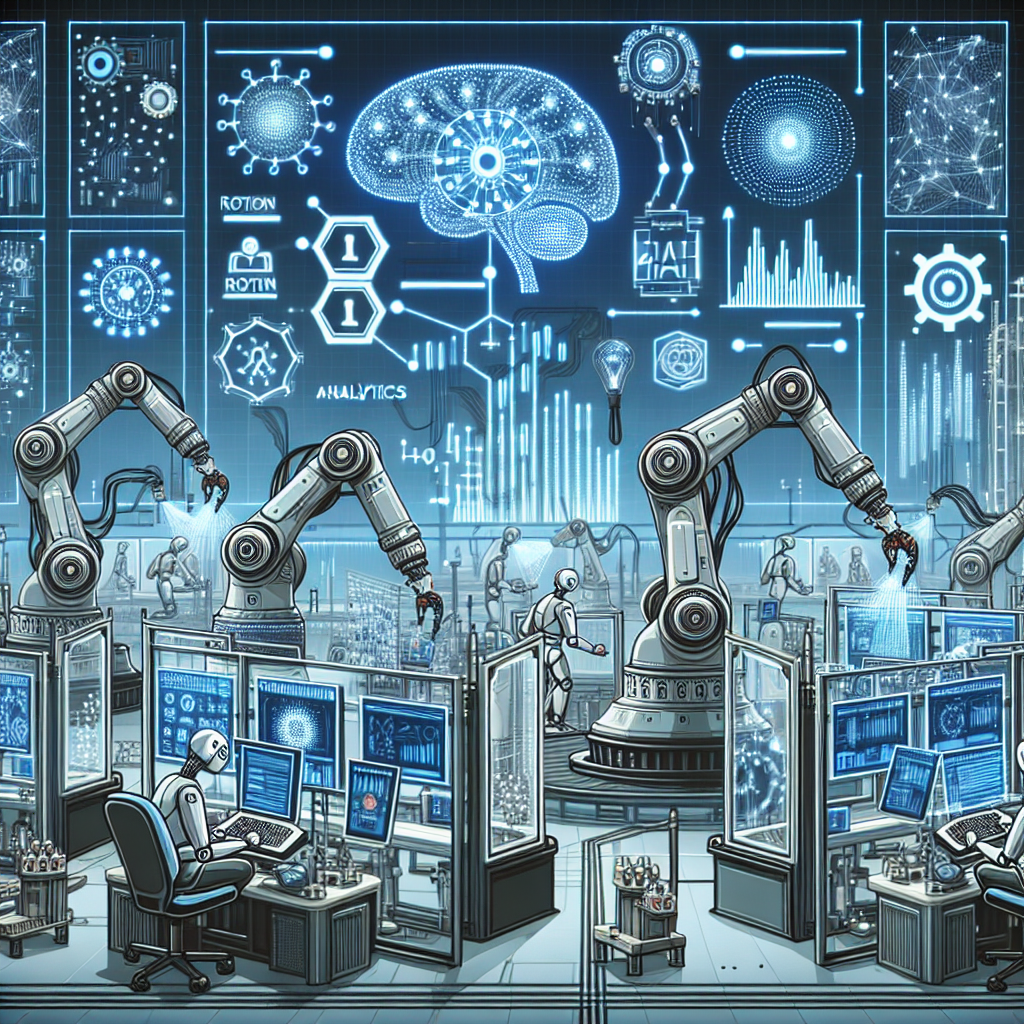Artificial Intelligence (AI) has revolutionized many industries, and manufacturing is no exception. AI technologies have had a significant impact on manufacturing efficiency, leading to increased productivity, improved quality, reduced costs, and enhanced safety. In this article, we will explore the various ways in which AI is transforming the manufacturing sector and discuss the potential benefits and challenges associated with its adoption.
One of the key ways in which AI is improving manufacturing efficiency is through predictive maintenance. By analyzing data from sensors and other sources, AI algorithms can predict when a machine is likely to fail and schedule maintenance before a breakdown occurs. This proactive approach to maintenance can help reduce downtime and increase the lifespan of equipment, ultimately leading to cost savings and improved productivity.
AI is also being used to optimize production processes. By analyzing data on factors such as machine performance, energy consumption, and raw material usage, AI algorithms can identify areas where efficiency can be improved and suggest changes to optimize production. This can lead to increased output, reduced waste, and improved quality, all of which contribute to higher overall efficiency.
Another way in which AI is transforming manufacturing efficiency is through the use of autonomous robots. These robots can perform a variety of tasks, from simple repetitive actions to complex assembly processes, with speed and precision that surpass human capabilities. By automating these tasks, manufacturers can increase throughput, reduce errors, and improve safety in the workplace.
AI is also playing a role in supply chain management, helping manufacturers optimize inventory levels, reduce lead times, and improve forecasting accuracy. By analyzing data from suppliers, customers, and other sources, AI algorithms can identify trends and patterns that can help manufacturers make more informed decisions about their supply chain operations. This can lead to cost savings, improved customer satisfaction, and increased efficiency throughout the entire manufacturing process.
In addition to these benefits, AI can also help manufacturers improve product design and development. By analyzing data on customer preferences, market trends, and competitor offerings, AI algorithms can provide valuable insights that can inform product design decisions. This can lead to the development of more innovative and competitive products that better meet the needs of customers.
Despite the many benefits of AI in manufacturing, there are also challenges associated with its adoption. One of the main challenges is the investment required to implement AI technologies, including the cost of hardware, software, and training. Additionally, there may be resistance from employees who fear that AI will replace their jobs or change the nature of their work.
Another challenge is the need for data privacy and security. AI algorithms rely on large amounts of data to make informed decisions, and this data must be protected from cyber threats and unauthorized access. Manufacturers must ensure that they have robust data security measures in place to protect sensitive information and comply with regulations.
Overall, the impact of AI on manufacturing efficiency is significant and far-reaching. From predictive maintenance to autonomous robots to supply chain optimization, AI technologies are transforming the way manufacturers operate and helping them achieve higher levels of productivity, quality, and cost-effectiveness. As AI continues to evolve and become more sophisticated, its impact on manufacturing efficiency is only expected to grow.
FAQs
Q: How can AI improve predictive maintenance in manufacturing?
A: AI can analyze data from sensors and other sources to predict when a machine is likely to fail and schedule maintenance before a breakdown occurs. This proactive approach can help reduce downtime and increase equipment lifespan.
Q: What are the benefits of using autonomous robots in manufacturing?
A: Autonomous robots can perform tasks with speed and precision that surpass human capabilities, leading to increased throughput, reduced errors, and improved safety in the workplace.
Q: How can AI help optimize production processes in manufacturing?
A: By analyzing data on factors such as machine performance, energy consumption, and raw material usage, AI algorithms can identify areas where efficiency can be improved and suggest changes to optimize production.
Q: What challenges are associated with the adoption of AI in manufacturing?
A: Challenges include the investment required to implement AI technologies, resistance from employees, and the need for data privacy and security measures to protect sensitive information.
Q: How can AI help manufacturers improve product design and development?
A: By analyzing data on customer preferences, market trends, and competitor offerings, AI algorithms can provide valuable insights that can inform product design decisions and lead to the development of more innovative and competitive products.

